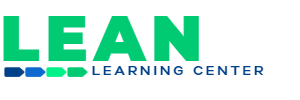Learning the critical role of HR in lean transformation.
Lean is primarily a people system, so shouldn’t Human Resources play a central role? Yet too often HR is sitting on the sidelines of the lean journey. HR has two roles in the lean journey. The first is to apply lean to their own processes. The second, and more challenging role, is to use HR systems and processes to help drive the lean change throughout the organization, from how the organization hires to its reward and recognition systems. This on-site course facilitated within your organization will use a customized approach to meet your organization’s unique needs by blending key lean skills that HR needs to master while exploring the role of HR in lean.
Throughout the world, Human Resources has been struggling to achieve a status of valued partner that is desired and deserved. This is often worse in organizations on a lean journey, when others in the company end up having a greater impact on the human resources than the HR department can ever have. Lean is a people system, and so shouldn’t HR have a much greater role in the lean journey than they do today? Elevate your HR team to taking a leadership role in the lean journey.
There are so many levers that HR has available to them to help impact the lean journey: hiring, firing, succession planning, job description development, incentive program development, job training, organizational design, and many more.
This course is not a comprehensive overview of all things lean, nor is it the “lean manufacturing” view of lean that most HR groups get dragged through. It is perhaps the only course of its kind: what do HR professionals need to know about lean, what skills are most useful in their role supporting their partners within the business, and how to pull the right levers in support of the organization’s lean journey.
This course is taught as a public-enrollment course where you can interact and learn from other HR professionals, or contact us about bringing it to your company as a session for your in-tact team.
Key Benefits
- Elevate your HR team to a leadership role in the lean journey
- Be an everyday force for culture change with your business partners
- Add more value through your engagements with business partners
- Make HR initiatives more aligned to each other and company needs
- Get more done with the resources you have
In this course, you will be introduced to a case study that becomes the basis for practical application throughout the program. The case study explores a new leader in a new role with a challenging business and culture situation. You, as an HR generalist, cannot solve the problem for this leader but must work with them as an advisor and partner to play the right role in helping bring about the needed change. Sound familiar enough?
In the first day, you will be introduced to A3 methodology as a means to engage your business partners with lean thinking and create a more collaborative partnership is working through their issues and how you support them in their issues. This includes overcoming major failure modes such as not having clear problem statements or objectives, and not treating the engagements as experiments and learning opportunities. You continue to learn about culture change, not at the theoretical level but at the practical level. Learn how to analyze the culture through behaviors and help your business partners develop and deploy tactical plans to change behaviors in their organization. Culture change occurs through the purposeful effort of many, many small tactics, not one large event.
In the second day, you will learn a combination of lean methods that are effective for use within HR as well as how specific HR mechanisms interact with the lean journey. You will explore root cause analysis and the effective use of the 5 whys. You learn how organizational design and resource planning can be viewed differently when engaged in lean problem solving. Organizational design, in a lean environment, must be designed more around process, learning, and problem solving; most lean professionals don’t know how to engage organizational design changes as part of the solution space. The target condition is explored, helping yourself and your business partner think past surface-level issues and discuss more clearly about what you really want to achieve together, and how you build a common target to pursue. And you also learn how standard work looks different in the world of the knowledge worker compared to the factory floor. Standard work can apply both to the work within HR, as well as work with many of your business partners.
In day three, you explore motivation, and related reward and recognition structures, to understand how this has either a supporting or destructive role in the lean journey. The course then begins to pull all of these themes together to a comprehensive approach and strategy for engaging your HR organization, and in turn, your business partners, in an effective lean transformation. You will take what you’ve learned and develop a first-steps action plan for what you will do when you return to your organization.
Contact Our Experts to

